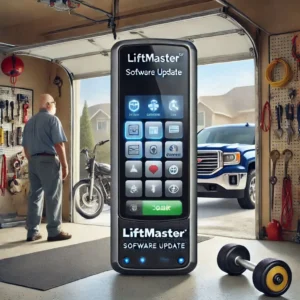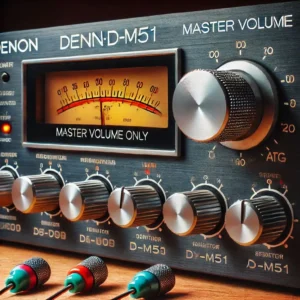Braking systems are a crucial safety feature in every vehicle. When something goes wrong with your brakes, like a master cylinder failure, it’s natural to wonder whether other components, such as the brake booster, might also need replacing.
This article will help you understand these Master Cylinder Failed Should i also Replace Brake Booster, their relationship, and how to make informed decisions about repairs.
Understanding the master cylinder failed should i also replace brake booster
The master cylinder is a vital part of your vehicle’s hydraulic braking system. When you press the brake pedal, the master cylinder converts that mechanical pressure into hydraulic pressure, forcing brake fluid through the system to engage the brakes.
Signs of a Failing Master Cylinder
- Spongy Brake Pedal: A sinking or soft pedal indicates a possible fluid leak or internal wear in the master cylinder.
- Brake Fluid Leaks: You might notice fluid under your car or a lower fluid level in the reservoir.
- Contaminated Brake Fluid: Dark or murky fluid can signal internal cylinder wear.
- Reduced Braking Performance: Longer stopping distances or uneven braking might point to a failing master cylinder.
Understanding the Brake Booster
The brake booster amplifies the force applied to the brake pedal, making it easier to stop your vehicle. Most modern vehicles use a vacuum-assisted brake booster, which uses engine vacuum pressure to enhance braking efficiency.
Signs of a Failing Brake Booster
- Hard Brake Pedal: Increased effort to press the pedal is a common indicator of brake booster issues.
- Hissing Noise: A vacuum leak can cause a hissing sound from the booster area.
- Longer Stopping Distance: If the booster isn’t functioning, you may need more time and distance to stop.
Relationship Between the Master Cylinder and Brake Booster
While the master cylinder and brake booster serve different purposes, they work closely together to ensure proper braking performance. A failing master cylinder can sometimes affect the brake booster by causing leaks that allow brake fluid into the booster. Over time, this contamination can damage the booster, reducing its effectiveness or leading to total failure.
When to Replace Both Components
If your master cylinder has failed, consider these factors before deciding whether to replace the brake booster as well:
- Extent of Damage: If brake fluid has leaked into the booster, it’s likely contaminated and should be replaced.
- Age of the Components: If both parts are old, replacing them together can prevent future issues.
- Mechanic’s Advice: Consult with a trusted professional for an accurate diagnosis and recommendation.
Risks of Not Replacing the Brake Booster
If your brake booster is damaged but not replaced, you might experience reduced braking efficiency, potentially leading to accidents. Contaminants like brake fluid inside the booster can also degrade its seals, causing internal vacuum leaks over time.
Benefits of Replacing Both Together
- Improved Safety: Ensuring both components are functional restores full braking efficiency.
- Cost Savings: Combined repairs can save labor costs compared to addressing each issue separately.
- Peace of Mind: Knowing both parts are in top condition reduces the likelihood of further problems.
Steps to Diagnose the Problem
Here are steps you or your mechanic might take to determine the scope of repairs:
- Inspect for Fluid Leaks: Check the area around the master cylinder and brake booster for signs of brake fluid.
- Listen for Unusual Noises: A hissing sound may indicate a booster vacuum leak.
- Test Brake Pedal Feel: A spongy or hard pedal can reveal the nature of the issue.
- Examine Brake Fluid: Dirty or low brake fluid levels can indicate a failing master cylinder.
Also read Troubleshooting: j5create 100W USB-C Super Charger Not Working
Repair vs. Replacement: What’s Best?
Sometimes, repairing a master cylinder or brake booster may be an option. However, most mechanics recommend full replacement for these components because:
- Repairs may not address all underlying issues.
- Replacement parts typically come with warranties.
- Modern replacements offer improved reliability.
Cost Considerations
Master Cylinder Replacement Cost
- Parts: $100 to $300
- Labor: $150 to $250
Brake Booster Replacement Cost
- Parts: $150 to $400
- Labor: $200 to $300
Combined replacement often reduces overall labor charges, offering cost efficiency.
Preventative Maintenance Tips
- Check Brake Fluid Regularly: Keep it at the recommended level and replace it every 2-3 years.
- Address Issues Early: Don’t ignore unusual brake pedal feel or noises.
- Use Quality Parts: Invest in high-quality components for durability.
- Regular Inspections: Have your braking system inspected during routine maintenance.
DIY Replacement: Is It Possible?
Replacing a master cylinder or brake booster requires specialized tools, knowledge, and safety precautions. While experienced DIYers might manage this, it’s typically better to rely on professional mechanics. Mistakes in the braking system can be costly and dangerous.
DIY Challenges
- Ensuring proper bleeding of the brake lines.
- Avoiding damage to adjacent components.
- Verifying correct vacuum connections.
Conclusion
If your master cylinder has failed, carefully assess the condition of your brake booster. While not always necessary, replacing both components together can save you time, money, and stress in the long run. Always consult a trusted mechanic and prioritize safety to keep your vehicle’s braking system in top shape.






Be First to Comment